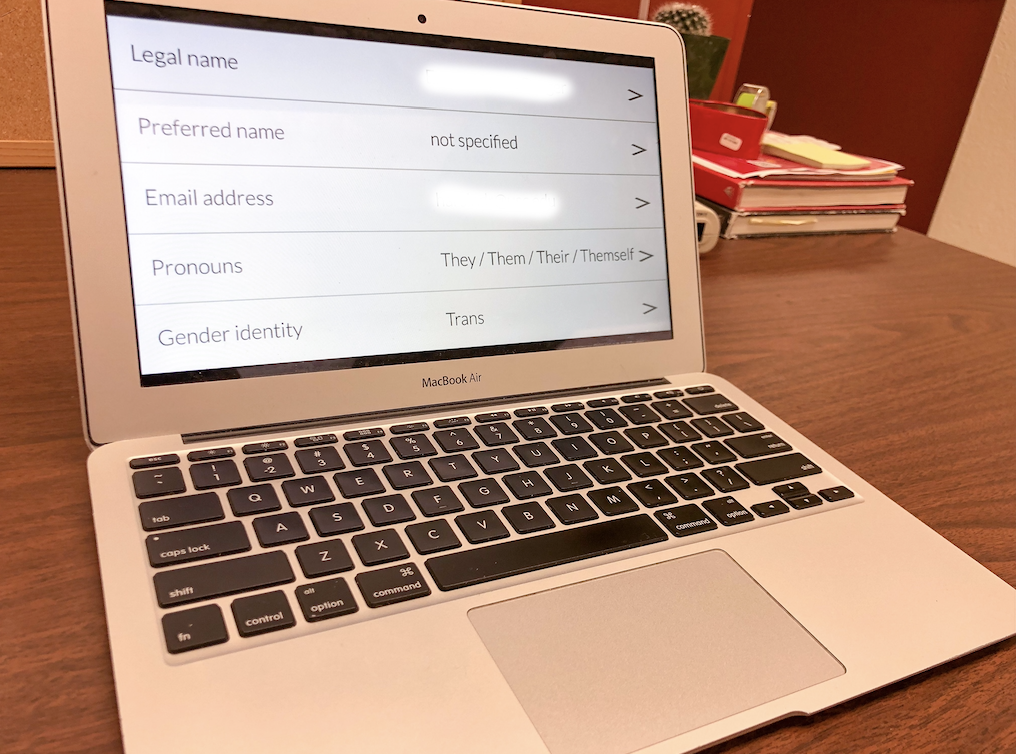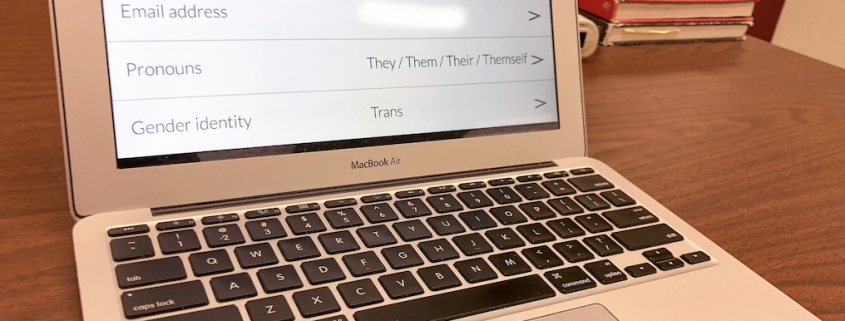Student portals to allow changes in preferred name, pronouns

Students will be able to change their names and pronouns on their MyUSC accounts beginning Monday. The University directory, class rosters and Blackboard will reflect any name changes made.
The change comes after two years of research and discussion spearheaded by the Graduate Student Government and the Office of the Provost. Eventually, all University records will reflect students’ preferred names and pronouns, except for matters that absolutely require a student’s legal name, such as financial aid and medical records.
Chief Information Officer Doug Shook said the changes will be implemented on a rolling basis, since not all of the University systems are centralized.
“There literally are hundreds of different systems where we could implement this,” Shook said. “It’s going to be phased in over time throughout the rest of the year.”
It was already possible for transgender and gender non-conforming students to request a name change for University email addresses, Net IDs and USCards through the Title IX Office and the LGBT Resource Center. Shook said the new policy changes will make this process easier for students.
“Technology … is being an enabler here rather than being an obstacle for us to help better serve the students and the faculty,” Shook said.
Students were also able to send letters to their professors through the Title IX Office to request they use a preferred name and pronouns, but those changes previously wouldn’t apply to Blackboard.
GSG Vice President of Advocacy Emmett Harsin Drager uses they/them pronouns. They wrote a resolution last spring for USC to change its preferred name policy. Harsin Drager said their decision was partly inspired by their experience using Blackboard as a teaching assistant.
“As a trans person … I cared about changing the policy,” Harsin Drager said. “But I also recognized that there were more students on campus who wanted to be able to use preferred names that were international students, more than there are transgender students.”
Harsin Drager’s resolution listed other universities in the Pac-12 athletic conference that allow preferred names on their digital learning platforms. Out of the 12 schools, USC and Arizona State were the only ones that did not allow students to list their preferred names on Blackboard or other similar platforms.
The policy change was also driven by the Obama administration’s 2016 “Dear Colleague Letter on Transgender Students,” which said that schools are required to respect students’ gender identities and preferred names, or they would run the risk of violating Title IX policies.
“The letter that was issued in 2016 started a lot of conversations within Title IX about the protections for trans students,” said Kegan Allee-Mowad, assistant director of USC’s Title IX Office. “Specifically, it raised questions about student records … and recognizing [students’] chosen names … as well as pronouns.”
Allee-Mowad said Provost Michael Quick asked Dean of Religious Life Varun Soni to assemble a task force that would address the letter’s requirements in Fall 2016. The state of California lists gender as a protected class, which Allee-Mowad said informed the task force’s work.
Allee-Mowad said the task force included herself, Soni, LGBT Resource Center director Kelby Harrison and a number of students, who spent the year writing proposals that were then submitted to the Provost.
After Quick gave his approval, the proposals moved on to Shook, who was responsible for the technological logistics, according to Allee-Mowad and Harrison.
“The task force submitted its recommendations … We were doing pretty good on most other items; the IT piece really needed work,” Harrison said.
By Fall 2017, after the task force’s proposals had been approved, the University was already working on implementing the policy changes. It was around this time that Harsin Drager, whose name in the University directory does not currently reflect their preferred name, approached Harrison for help. Harrison directed them to the Title IX Office, where they were able to get a new ID card and change the name associated with their student email.
“I just had to go down all these different avenues,” Harsin Drager said. “There were ways to change your name, but the one that remained impossible to change was Blackboard.”
Harsin Drager said Harrison encouraged them to draft the proposal for a GSG resolution, which would provide student pressure for USC to begin implementing the policy changes. They said that after the resolution passed last April, IT Services began coding the changes, including on Blackboard, which was not originally part of the Provost’s task force proposals.
Harsin Drager said they hope the policy changes will help make USC a more inclusive community.
“In terms of the world, I feel like university campuses are more affirming than other spaces,” Harsin Drager said. “I’m excited that it’s finally happening … It should have happened a long time ago.”

